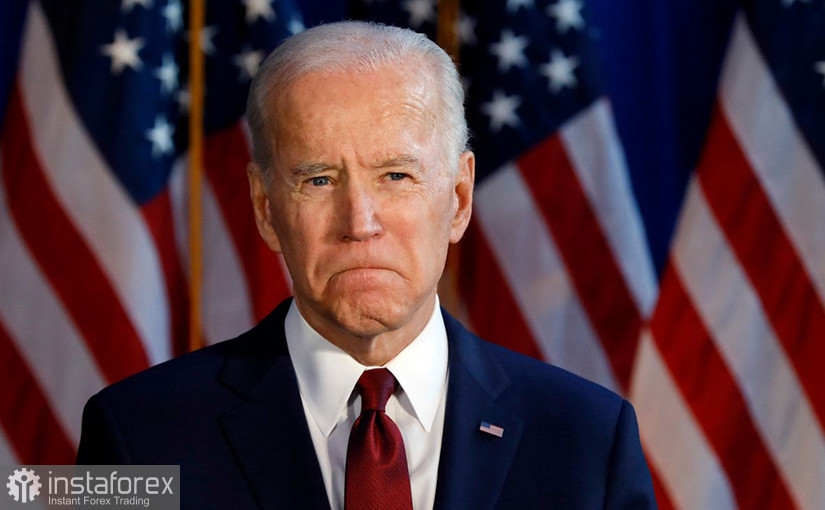
Wednesday's headlines were all about the skyrocketing inflation in the United States. In October, it reached the highest level in 30 years - 6.2% year-on-year, and it could rise even further. The next record to beat is the highest CPI in 40 years - in the early 1980s, it reached 15%, an impressive level by today's standards. The world's central banks have created an enormous amount of money over the past year and a half, pushing the national debt of many countries to the level exceeding 100% of their GDP. The IMF considers it very dangerous for the global economy, but it is obvious that constantly increasing debt is not a good thing. The rising inflation in these conditions is just a matter of course. The US money supply alone has expanded more than twofold, triggering higher prices of goods and services all over the world. No country can escape it, because it would still depend on global commodity and energy prices. This makes high inflation a worldwide problem.
US president Joe Biden understands this. In his speech in Baltimore on Wednesday, he acknowledged that "everything from a gallon of gas to a loaf of bread costs more". Biden stated that the US government should tackle this issue to ensure stability and confidence in the future for Americans. Furthermore, the Biden administration pledged to lower consumer and energy prices as well as prevent price manipulation in the energy market. It is unclear how the Treasury Department, the Federal Reserve and the White House would work together to bring prices down. Jerome Powell and Janet Yellen do not seem to be concerned about high inflation, calling it "transitory", while Biden is more concerned about his infrastructure and social spending packages, which are currently being debated in Congress. To make matters worse, the debt ceiling deadline of December 3 is looming on the horizon.





















